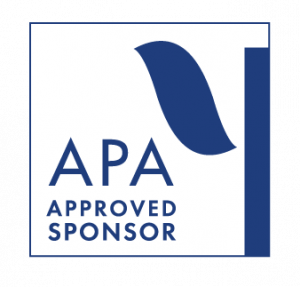“The INS neither promotes nor recommends any commercial products discussed in this episode”
Overview
 The International Neuropsychological Society is approved by the American Psychological Association to sponsor continuing education for psychologists. The International Neuropsychological Society maintains responsibility for this program and its content.
The International Neuropsychological Society is approved by the American Psychological Association to sponsor continuing education for psychologists. The International Neuropsychological Society maintains responsibility for this program and its content.The International Neuropsychological Society, Inc. is recognized by the New York State Education Department’s State Board for Psychology as an approved provider of continuing education for licensed psychologists #PSY-0154.

Kyle Brauer Boone, PhD
Instructor Credentials
Kyle Brauer Boone, Ph.D., ABPP-ABCN, is currently in private practice in Torrance, California. She served as director of the Neuropsychology Testing Service at Harbor-UCLA Medical Center from 1986 to 2008, and from 1997 to 2008 she was a tenured professor within the Department of Psychiatry at UCLA. From 2008 until 2016 she was a full professor within the California School of Forensic Studies at Alliant International University. She has published over 130 peer-reviewed articles in the area of neuropsychological assessment, primarily regarding the development and validation of neurocognitive performance validity tests, and also has authored/co-authored/edited seven books, the most recent of which, a second edition of Assessment of Feigned Cognitive Impairment: A Neuropsychology Perspective, was released in 2021. She has also served as first author on two position papers related to psychological/neuropsychological test security: the 2022 Official Position of the American Academy of Clinical Neuropsychology on Test Security, and the 2024 Interorganizational Practice Committee position paper (“Attorney demands for protected psychological test information: Is access necessary for cross examination or does it lead to misinformation?”). She is board certified in clinical neuropsychology (ABPP/ABCN), served on the Board of Directors of the American Academy of Clinical Neuropsychology until January of 2024, and is a fellow of the American Psychological Association and the National Academy of Neuropsychology. She also was the 2020 recipient of the Ralph M. Reitan Award for Clinical Excellence (2020) from the National Academy of Neuropsychology, and in 2023 received the Distinguished Service Award to the Profession of Psychology from the American Board of Professional Psychology (ABPP).
Disclosure(s)
Dr. Boone receives royalties from Western Psychological Services for her role as a test developer.
Learning Objectives
Following this activity, participants will be able to:
- List and describe at least two reasons why maintaining test security is important for neuropsychologists.
- Discuss at least two potential breaches of test security in forensic neuropsychology and how to prevent the breaches.
- Apply knowledge from this episode in clinical and forensic decision-making in neuropsychology (e.g., listing tests in reports, training psychometrists, responding to subpoenas).
Course Information
| Target Audience | Introductory |
| Credit Hours | 1.0 hour |
| Cost & Refund Policy | INS Members: $20 Non-Members: $25 Refund Policy: This podcast is not eligible for refunds. Users will have two attempts to pass the quiz. If they do not pass, they may re-purchase the test and try again. |
| Availability | September 3, 2024 Note: The CE course for this podcast will be released on this date. You may obtain CE credit for this podcast at any time after it is released. Content will be retired approximately 3 years after the live date. |
References
- Bilder, R. M., Postal, K. S., Barisa, M., Aase, D. M., Cullum, C. M., Gillaspy, S. R., … & Woodhouse, J. (2020). InterOrganizational practice committee recommendations/guidance for teleneuropsychology (TeleNP) in response to the COVID-19 pandemic. The Clinical Neuropsychologist, 34(7-8), 1314-1334.
- Boone, K. B., Kaufmann, P. M., Sweet, J. J., Leatherberry, D., Beattey, R. A., Silva, D., Victor, T. L., Boone, R. P., Spector, J., Hebben, N., Hanks, R. A., & James, J. (2024). Attorney demands for protected psychological test information: Is access necessary for cross examination or does it lead to misinformation? An interorganizational* position paper. The Clinical Neuropsychologist/Neuropsychology, Development, and Cognition. Section D, the Clinical Neuropsychologist, 38(4), 889–906. https://doi.org/10.1080/13854046.2024.2323222
- Boone, K. B., Sweet, J. J., Byrd, D. A., Denney, R. L., Hanks, R. A., Kaufmann, P. M., Kirkwood, M. W., Larrabee, G. J., Marcopulos, B. A., Morgan, J. E., Paltzer, J. Y., Mindt, M. R., Schroeder, R. W., Sim, A. H., & Suhr, J. A. (2022). Official position of the American Academy of Clinical Neuropsychology on test security. The Clinical Neuropsychologist/Neuropsychology, Development, and Cognition. Section D, the Clinical Neuropsychologist, 36(3), 523–545. https://doi.org/10.1080/13854046.2021.2022214
- Chafetz, M. D., Williams, M. A., Ben-Porath, Y. S., Bianchini, K. J., Boone, K. B., Kirkwood, M. W., Larrabee, G. J., & Ord, J. S. (2015). Official Position of the American Academy of Clinical Neuropsychology Social Security Administration Policy on Validity Testing: Guidance and Recommendations for Change. The Clinical Neuropsychologist/Neuropsychology, Development, and Cognition. Section D, the Clinical Neuropsychologist, 29(6), 723–740. https://doi.org/10.1080/13854046.2015.1099738
- Corey, D. M., & Ben-Porath, Y. S. (2020). Practical guidance on the use of the MMPI instruments in remote psychological testing. Professional Psychology, Research and Practice, 51(3), 199–204. https://doi.org/10.1037/pro0000329
- Glen, T., Barisa, M., Ready, R., Peck, E., & Spencer, T. R. (2021). Update on Third Party Observers in Neuropsychological Evaluation: An Interorganizational Position Paper. The Clinical Neuropsychologist/Neuropsychology, Development, and Cognition. Section D, the Clinical Neuropsychologist, 35(6), 1107–1116. https://doi.org/10.1080/13854046.2021.1901992
- Heilbronner, R. L., Sweet, J. J., Morgan, J. E., Larrabee, G. J., Millis, S. R., & Participants, N. C. (2009). American Academy of Clinical Neuropsychology Consensus Conference Statement on the Neuropsychological Assessment of Effort, Response Bias, and Malingering. The Clinical Neuropsychologist/Neuropsychology, Development, and Cognition. Section D, the Clinical Neuropsychologist, 23(7), 1093–1129. https://doi.org/10.1080/13854040903155063
- Kaufmann, P. M. (2009). Protecting Raw Data and Psychological Tests from Wrongful Disclosure: A Primer on the Law and Other Persuasive Strategies. The Clinical Neuropsychologist/Neuropsychology, Development, and Cognition. Section D, the Clinical Neuropsychologist, 23(7), 1130–1159. https://doi.org/10.1080/13854040903107809
- Postal, K. S., Bilder, R. M., Lanca, M., Aase, D. M., Barisa, M., Holland, A. A., … & Salinas, C. (2021). InterOrganizational practice committee guidance/recommendation for models of care during the novel coronavirus pandemic. The Clinical Neuropsychologist, 35(1), 81-98.
- Sweet, J. J., Boone, K. B., Denney, R. L., Hebben, N., Marcopulos, B. A., Morgan, J. E., Nelson, N. W., & Westerveld, M. (2022). Forensic neuropsychology: History and current status. The Clinical Neuropsychologist/Neuropsychology, Development, and Cognition. Section D, the Clinical Neuropsychologist, 37(3), 459–474. https://doi.org/10.1080/13854046.2022.2078740
- Sweet, J. J., Heilbronner, R. L., Morgan, J. E., Larrabee, G. J., Rohling, M. L., Boone, K. B., Kirkwood, M. W., Schroeder, R. W., & Suhr, J. A. (2021). American Academy of Clinical Neuropsychology (AACN) 2021 consensus statement on validity assessment: Update of the 2009 AACN consensus conference statement on neuropsychological assessment of effort, response bias, and malingering. The Clinical Neuropsychologist/Neuropsychology, Development, and Cognition. Section D, the Clinical Neuropsychologist, 35(6), 1053–1106. https://doi.org/10.1080/13854046.2021.1896036
Test Content
Lorem Ipsum
Lorem Ipsum